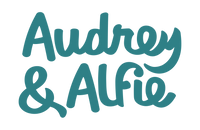
This is a collaborative blog written by Jennifer Sin (Paediatric Pharmacist, Director & Founder - ModAllergen) and reviewed by Zoe Taylor (Accredited Practicing Dietitian and Co-Founder, Audrey & Alfie). Note: This blog contains advice of a general nature only. If your baby is at high risk of allergic reaction or suffers from severe eczema, consult your GP or Maternal Child Health Nurse for individualised advice prior to introducing allergens.
Not sure how to introduce common allergy causing foods to your baby? Research shows that introducing allergens into your baby's diet can significantly reduce the risk of food allergies. Let’s explore how you can safely start early allergen introduction.
Why Early Introduction Works
The idea of introducing potential allergens to your baby might seem daunting at first, but research shows that it can actually help their immune system become more tolerant to these foods. Studies have found that early and consistent exposure to allergens like peanuts, eggs, and tree nuts can significantly lower the risk of developing food allergies later in life.
When your baby's immune system is exposed to small amounts of these foods early on, it learns to recognise them as harmless, reducing the likelihood of an allergic reaction in the future. This process, known as oral tolerance, is most effective when started from 4 to 6 months of age, which is when your baby’s immune system is most adaptable. Once the food has been introduced, it is important to keep it in bub’s diet 2-3 times a week.
When to Start Allergen Introduction
When your baby is ready to start eating solids is the perfect time to also start introducing allergens into their diet, typically from 6 months of age and no earlier than 4 months old. There’s no need to delay or wait! If you’d like more information on when and how to start solids, check out this blog.
How to Safely Introduce Allergens
Introducing allergens to your baby’s diet can be safe and straightforward with the right approach.
Here are some guidelines to help you navigate this process:
Using ModAllergen for Safe and Effective Introduction
At ModAllergen, we understand the concerns many parents feel about introducing allergens into their baby’s diet. That’s why we offer innovative, organic, and preservative-free powdered foods containing top allergens like prawns, eggs, peanuts, and tree nuts. Our products are designed to be safe and easy to use, providing a scientifically backed, convenient, and effective way to introduce these foods to your baby.
Introducing allergens to your baby’s diet may seem intimidating, but with the right approach and resources, you can significantly reduce the risk of food allergies and set your child on a path to a healthy and adventurous eating experience.
Where to go for help?
If you are concerned about the process of introducing allergens to your baby, your child suffers from severe eczema or is otherwise at high risk of developing an allergy (i.e. strong family history of allergy), consult your GP or Maternal Child Health Nurse prior to introducing any allergy goods. They can help to guide you through an individualised plan for introduction, and may be able to support this with extra tests, too.
For more general information, we recommend the following resources:
- Nip Allergies in the Bub: preventallergies.org.au
- ASCIA (Australian Society of Clinical Immunology and Allergy): Home - Australasian Society of Clinical Immunology and Allergy (ASCIA)
- Allergy & Anaphylaxis Australia: Home - Allergy & Anaphylaxis Australia (allergyfacts.org.au)
- Allergy Aware: Home - Allergy Aware


Comments (0)
Back to Starting Solids